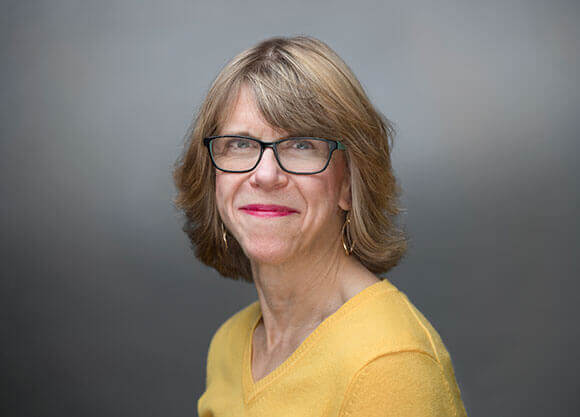
Nursing professor at forefront of Alzheimer’s research
May 30, 2018

May 30, 2018

School of Nursing Professor Sheila Molony understands what is at stake if this trend continues.
“With the increasing number of people over the age of 65, the annual number of new cases is projected to double by 2050,” she said.
Molony, an authority on aging, geriatric care and dementia assessment, is helping to lead the national conversation about the issue.
She is one of the 27 health care experts whose research comprised the Alzheimer’s Association’s 2018 Dementia Care Practice Recommendation Guidelines. Published in The Gerontologist, each of the 56 new recommendations for the diagnosis and care of Alzheimer’s dementia patients are framed around the idea of person-centered care.
“Person-centered care is an approach that conveys respect and seeks to understand the subjective experience of the person living with dementia,” Molony explained. “It is very consistent with our holistic philosophy here at the School of Nursing because it views persons with dementia as whole people.”
Molony’s research team focused particularly on person-centered assessment and care planning, which prioritizes a patient’s needs, values and routines, as well as their sources of joy and personal meaning. Her individual work on “at-homeness” — which identifies the home an experiential place of empowerment, refuge, lived relationships and identity — accounted for five of the recommendations alone.
“At-homeness is more a feeling than a physical place or space, and it’s unique to each of us,” Molony said. “It’s a feeling of warmth, centrality and belonging.”
Earlier this year, Molony and her fellow contributors presented the new recommendations before an audience of U.S. Senators and Dementia Advisory Council members in Washington, D.C. Among those in attendance were the architects of the Building Our Largest Dementia (BOLD) Infrastructure for Alzheimer’s Act, introduced in the U.S. House of Representatives and U.S. Senate recently. The bi-partisan legislation aims to help the Centers for Disease Control and Prevention establish Alzheimer’s Centers for Excellence nationwide, increasing education of public health officials, health care professionals and the public.
Molony hopes the guidelines launch will support the BOLD Infrastructure Act, as well as form the basis for many other endeavors and resources that can benefit families and health care providers.
“We all want to find a cure,” Molony said, “but we cannot wait to provide the help, care and support needed by so many in the present.”
Quinnipiac Today is your source for what's happening throughout #BobcatNation. Sign up for our weekly email newsletter to be among the first to know about news, events and members of our Bobcat family who are making a positive difference in our world.
Sign Up Now